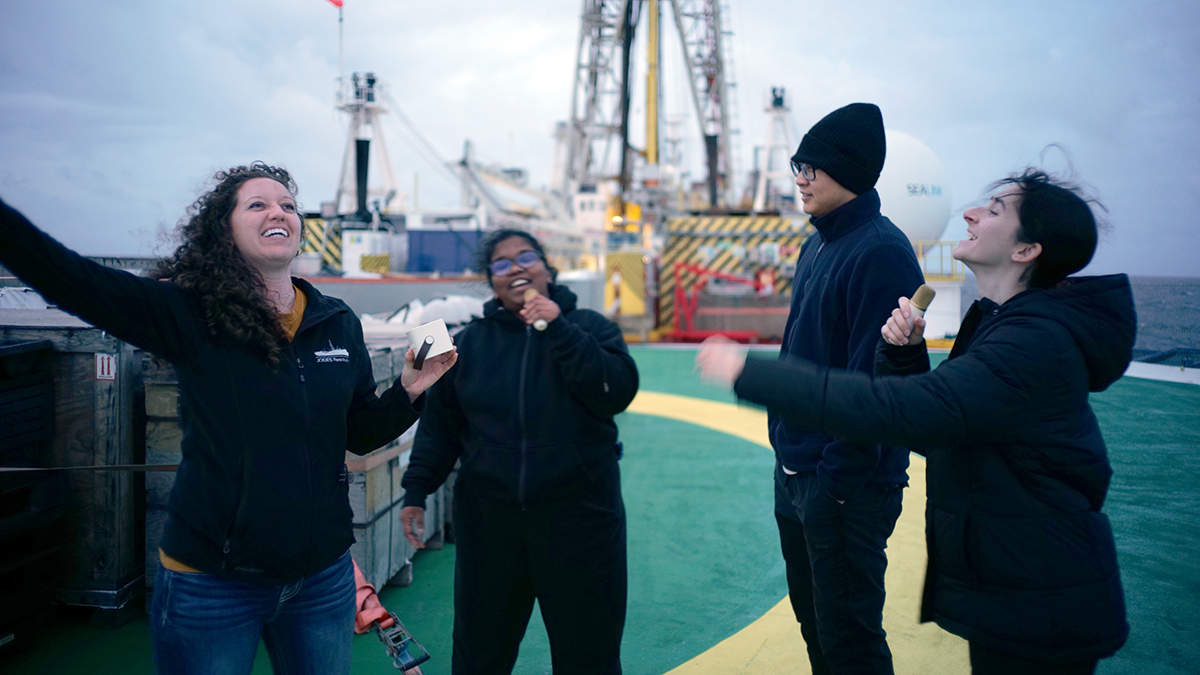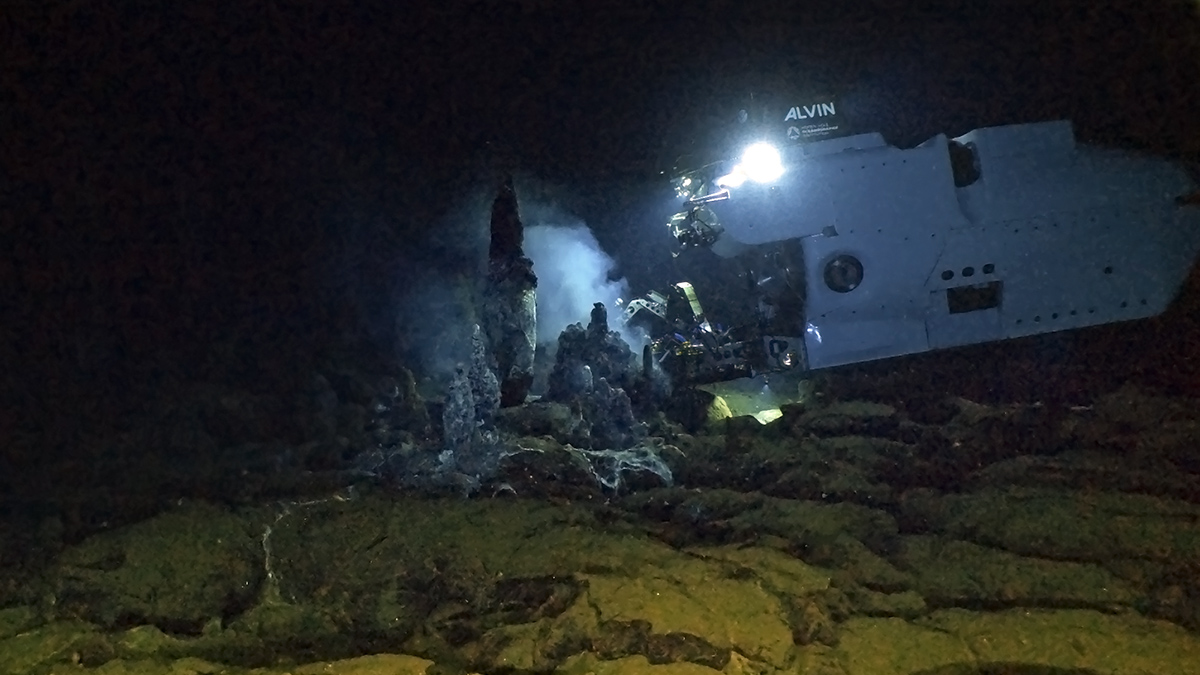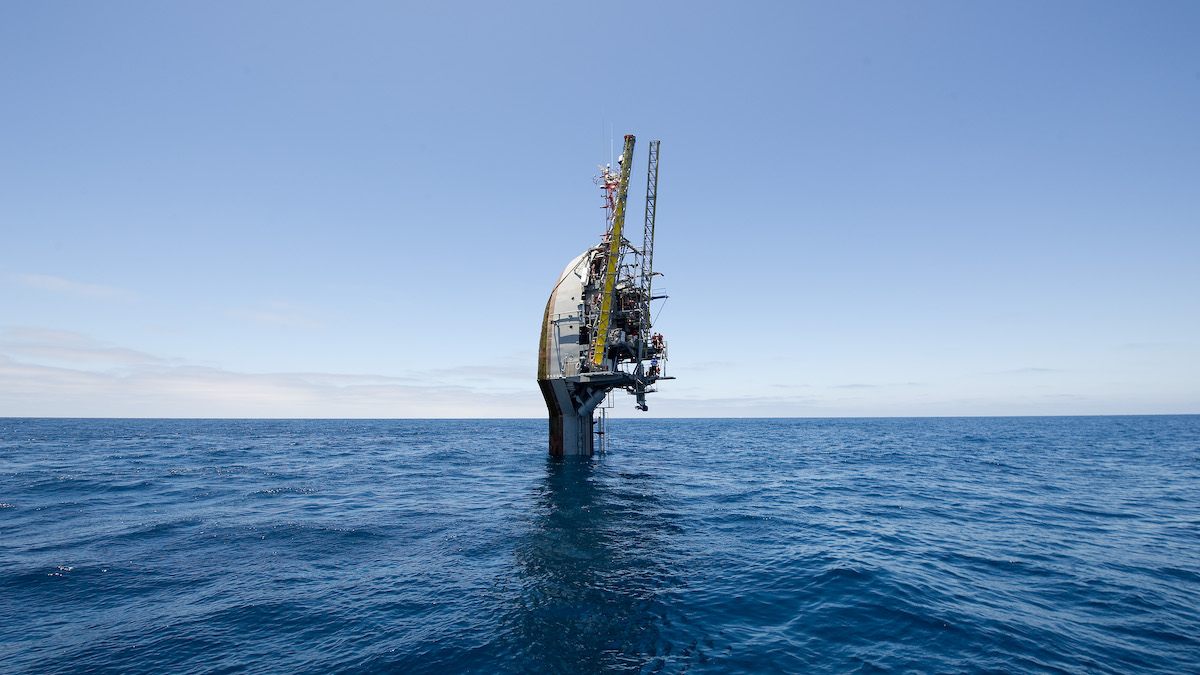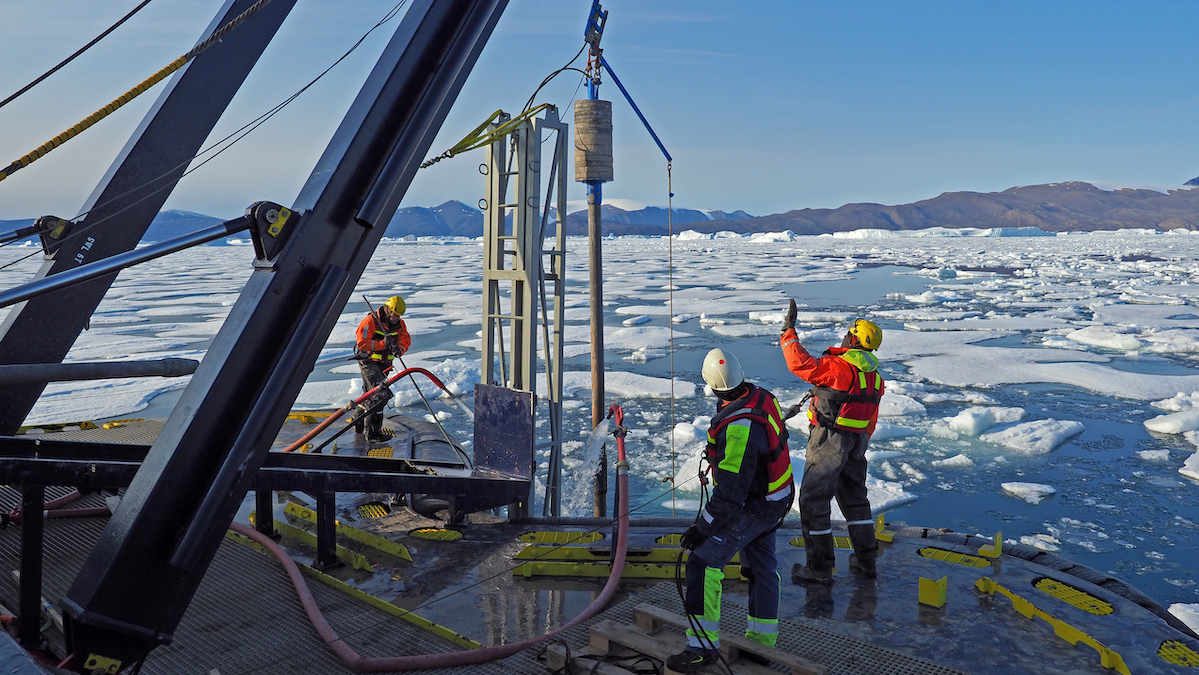Early-career geoscientists share melancholy memories about hard science and intangible networks of collaboration.
research at sea
An Upgraded Alvin Puts New Ocean Depths Within Reach
The newly retooled submersible, which has already returned fascinating new findings from Earth’s watery depths, is opening more of the deep ocean to direct human exploration.
U.S. Academic Research Fleet to Add Three Smaller, More Nimble Vessels
A dire lack of investment in oceangoing vessels means the U.S. ocean sciences community is lagging, scientists say. Three new vessels will play a part in building capabilities.
Beneficios de empoderar al profesorado de geociencias de colegios comunitarios
Crear colaboraciones y espacios hechos para el profesorado de colegios comunitarios puede mejorar su percepción de cómo encajan en la comunidad geocientífica y potenciar aún más la diversidad en la disciplina.
Flipping Ship FLIP Freed from Fateful Trip
A beloved research vessel will have a second career after an underwater technology company saved it from the scrapyard.
Swedish Icebreaker Is the First to Dig Into Greenland’s Remote Victoria Fjord
Data collected aboard Oden will shed light on the dynamics of the Greenland Ice Sheet.
Lost City’s Plumbing Exposed by the Longest Mantle Core Ever Drilled
The core, which is 71% complete, reveals millions of years of geologic history and the plumbing underlying hydrothermal vents.
Sensing Remote Realms of the Deep Ocean on Earth—and Beyond
A novel laser-equipped probe is collecting measurements of deep-sea geochemical environments that once seemed impossible to gather, pointing the way toward future explorations of other ocean worlds.
Exploring New Zealand’s Remote Fjords
Doing research in Fiordland—a vast territory of mountains, forests, and fiords in southwest New Zealand—takes ingenuity, collaboration, and a really good raincoat.
The Benefits of Empowering Community College Geoscience Faculty
Creating spaces and partnerships tailored to 2-year-college faculty can improve perceptions of how they fit into the geoscience community and boost diversity in the discipline more broadly.










